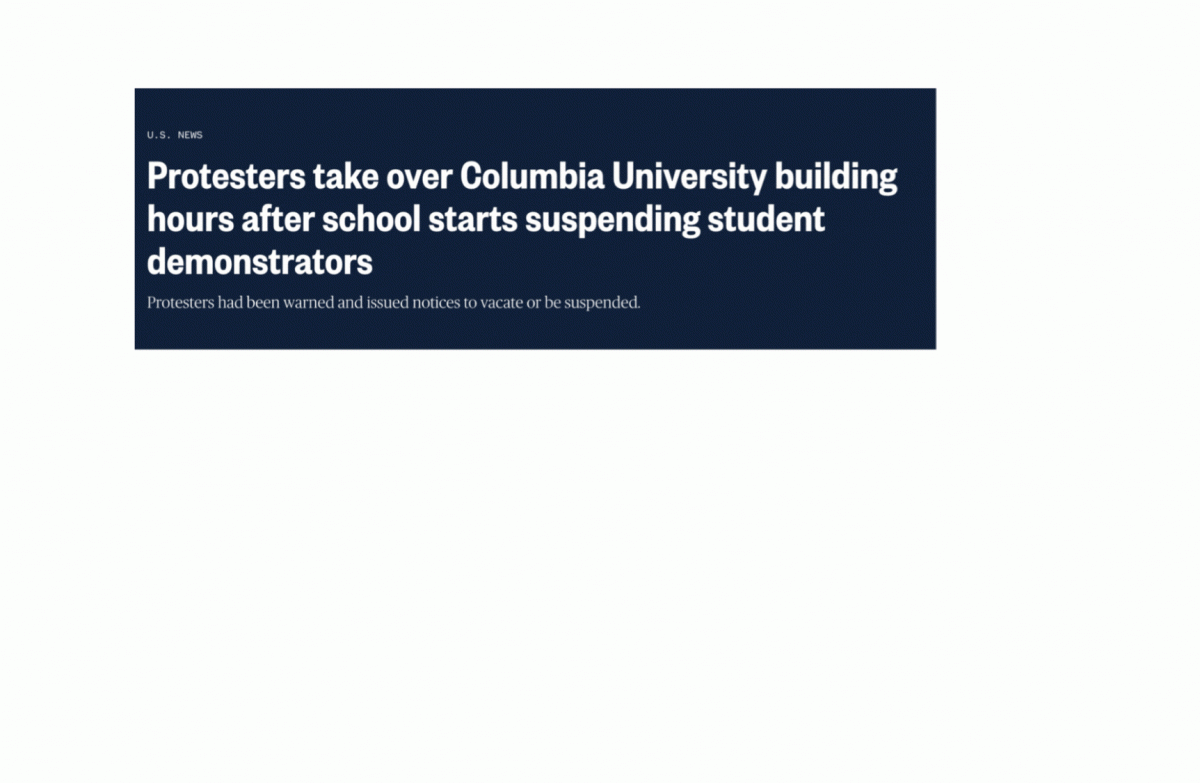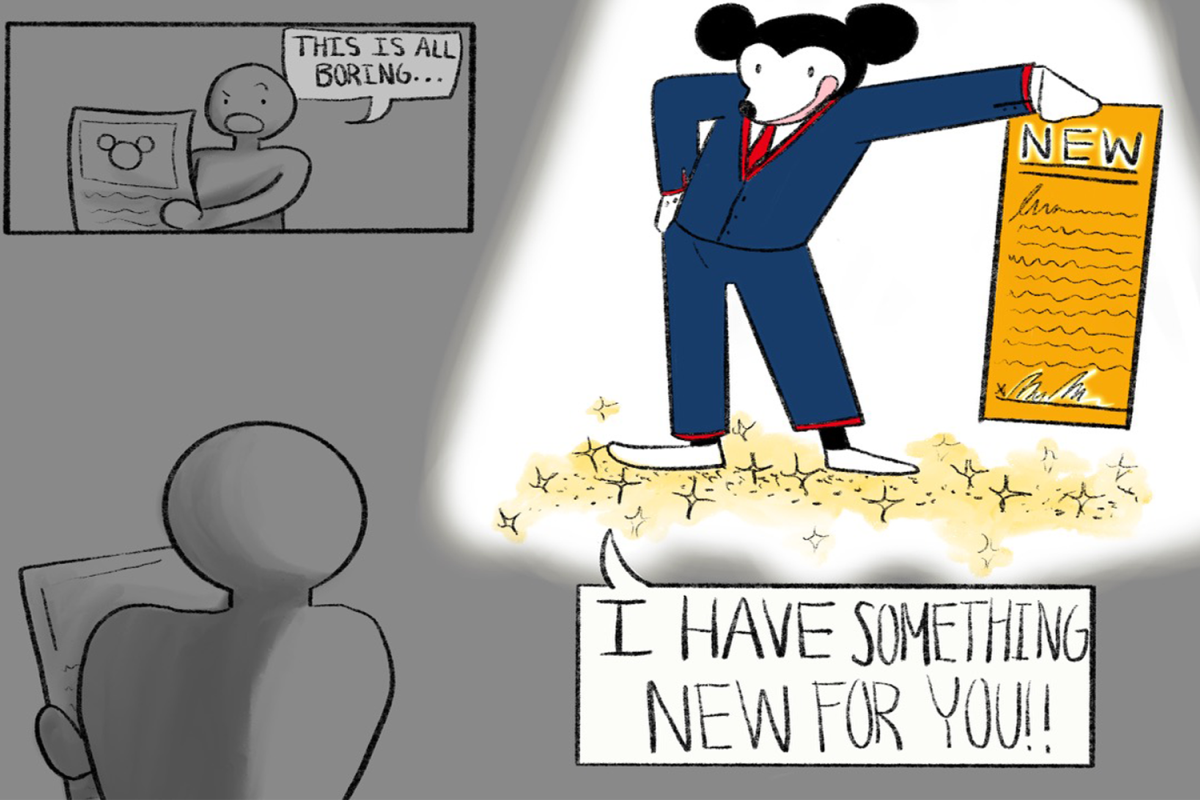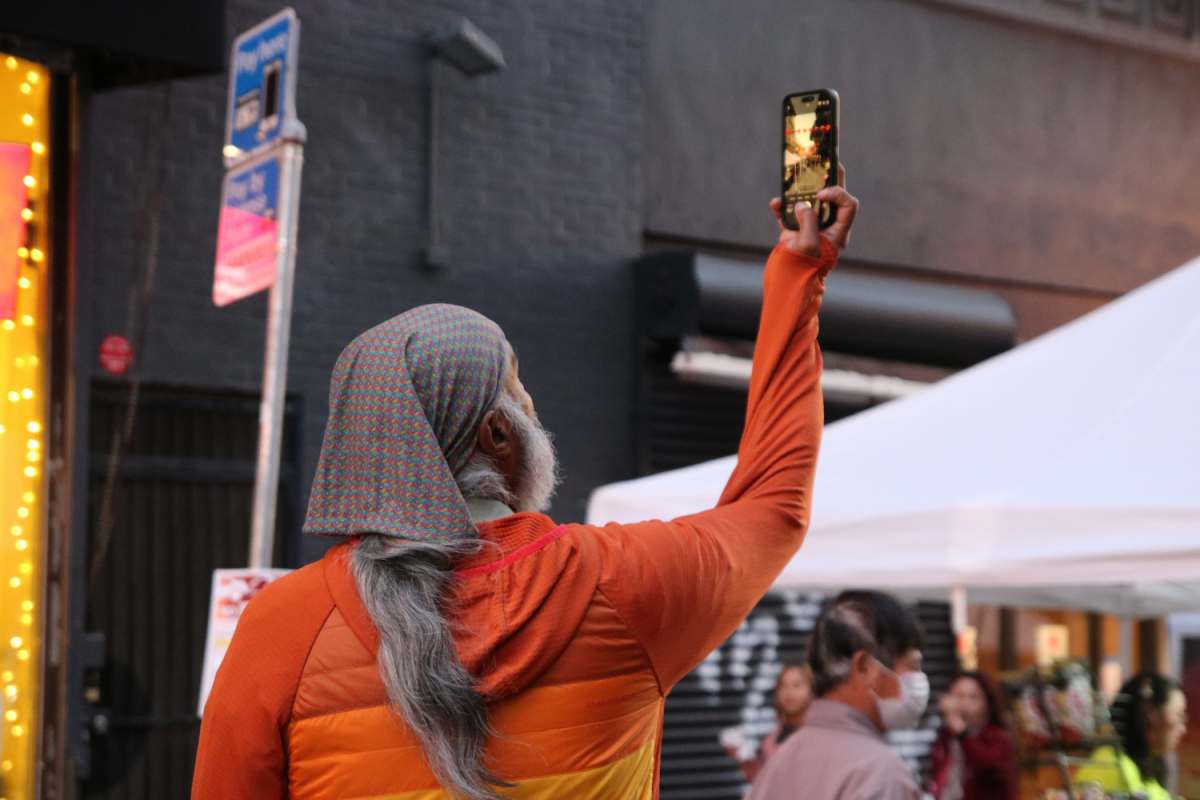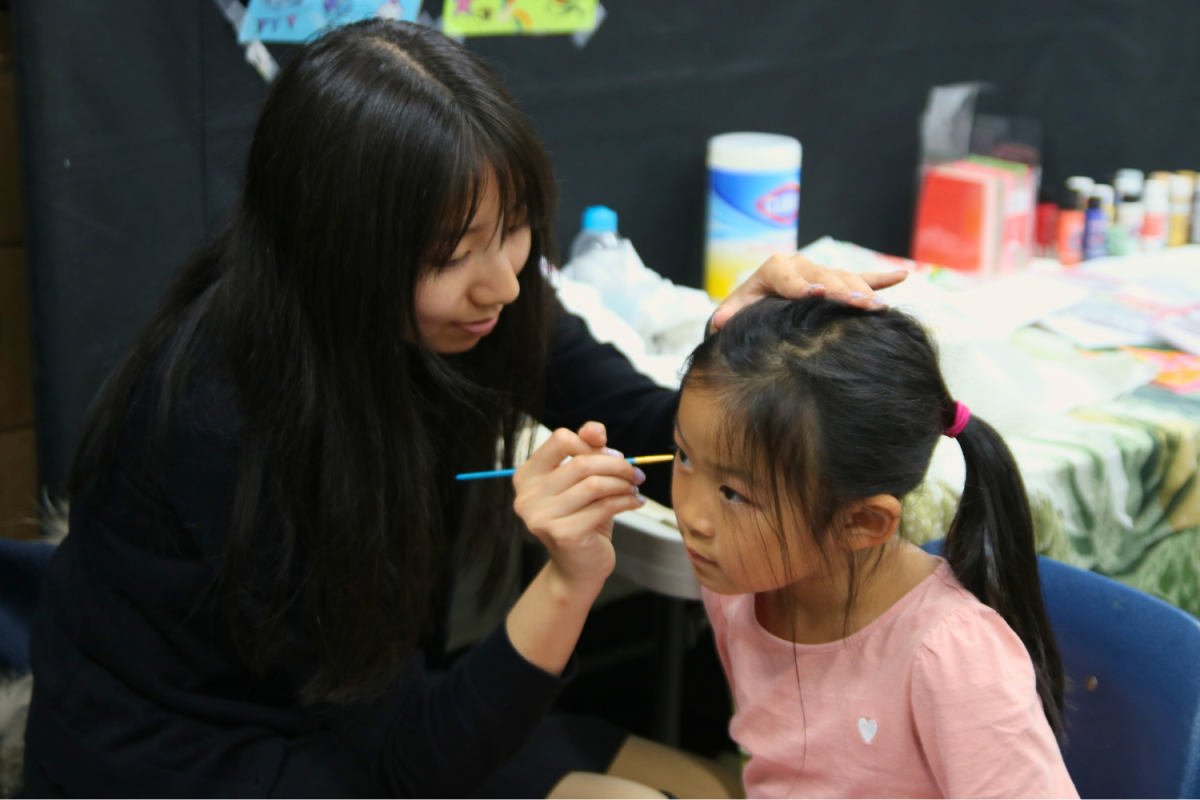It’s that time of the month again. My thing started. Niagara Falls. Strawberry Season. Bad luck.
These are some of the many terms that girls use all over the world instead of the word “period.” It’s as if periods and menstruation are forbidden words to say.
The stigma surrounding periods arose as a result of society viewing menstruation as an unclean occurrence that was not to be discussed.
“There is a stigma going around here because it’s about a lot of things that are not normally talked about in ‘polite society:’ blood, pain, and the female reproductive anatomy,” Darrell Koltsov, a junior at Carlmont High School, said.
According to Madeline Monsler, another junior at Carlmont High School, men are the main reason for starting the stigma because, in the past, men’s influence dominated society’s thought processes.
“Men don’t experience it, and they view it as something foreign. Since men are usually the ones in our society that make the society rules, they can think that something is unclean or unsanitary, which causes others to think the same way, and eventually, it moves into becoming a large part of society,” Monsler said.
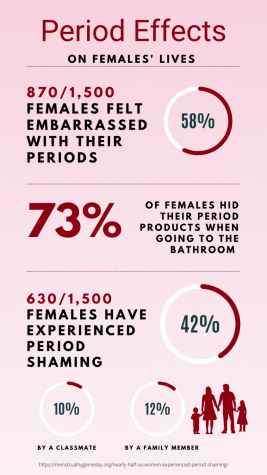
A survey conducted by New York Post showed that 42% of women have been period shamed before. Out of the 42%, one-fifth of the women were period shamed because of comments from their male friends.
The survey also found that 51% of the men surveyed thought it is inappropriate to talk about menstrual cycles in public.
In recent years, however, things have changed. People are becoming more educated on menstruation through health classes, personal experience, and the internet, leading to a greater openness in conversation surrounding periods.
“[The stigma] has gotten better in recent decades. When I was younger, people were just more old-fashioned. I’ve seen more openness about it. For example, when I was in high school, we wouldn’t have had [period products] in the classrooms,” David Gomez, a history teacher at Carlmont High Schoo, said.
With health class, male students have begun to learn more about menstruation allowing for a more educated populous.
Despite improved health classes throughout the United States, in many other parts of the world, especially those in poverty, the stigmatization of menstruation continues where many still believe menstruation is impure and dirty.
In our legislation, period products are labeled as a luxury item. Women have to pay a luxury tax for something that is a necessity that they have no control over. It’s not fair that some women have to go without period products because they can’t afford the so-called luxury items.
— Madeline Monsler
Along with the stigmatization, period poverty is a major issue for many. Girls struggle to get feminine hygiene products because they are simply too expensive with many having to face the choice between purchasing period products or necessities, such as food, while others are forced into unhygienic practices such as using period products longer than intended.
“In our legislation, period products are labeled as a luxury item. Women have to pay a luxury tax for something that is a necessity, that they have no control over. It’s not fair that some women have to go without period products because they can’t afford the so-called luxury items,” Monsler said.
According to a survey conducted by OnePoll, an average woman will have to spend about $6,360 on period products throughout their lifespan, starting at the age of 12 and ending at 52.
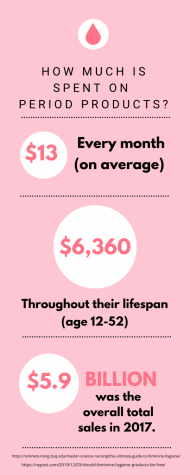
Oftentimes not being able to afford period products can have drastic effects on an individual’s daily life. This is demonstrated in the fact that many women are not able to go to school or work while others would have to use a substitute for period products such as cloth or tissue.
Due to period poverty, nine states, including New York and California, have made period products cheaper by exempting the sales tax on tampons and pads. Other states have been working on a bill called the anti-tampon-tax legislation.
However, Monsler feels that since menstruation is a natural process, exempting the sales tax on feminine hygiene products isn’t enough.
“[Period products] should be free. Otherwise, [the government is] essentially taxing people with uteruses, and they have to pay this tax every single month, which actually can add up to quite a bit of money,” Monsler said.
However, Alyssa Lu, a science teacher at Carlmont High School, believes that not everyone should get free feminine hygiene products due to the fear of people taking advantage of free products.
“Ordinary people will overhaul more than they need. However, they can make a system where they have to be qualified [to receive free products],” Lu said.
Along with the push for the abolishment of the sales tax on feminine hygiene products, many are pushing for public schools to provide period products for free. On Oct. 8, 2021, Gavin Newsom, the governor of California, passed a bill, the Menstrual Equity for All Act, which requires all public schools and colleges to provide menstrual products in bathrooms, starting next school year.
At Carlmont High School, the administration requires period products to be in every emergency bag. In addition, Jamie Abdilla, a Carlmont biotech teacher, started a project to help provide feminine hygiene products in classrooms.
“Because we are so far from the office, and girls would get their period and weren’t prepared, they would miss 15 to 20 minutes of class. It was really frustrating as a teacher. It was really frustrating as a woman. I began to supply my own [period products in my classroom]. The classroom is far enough away [from the office] that this should just be available to students [in the classrooms],” Abdilla said.
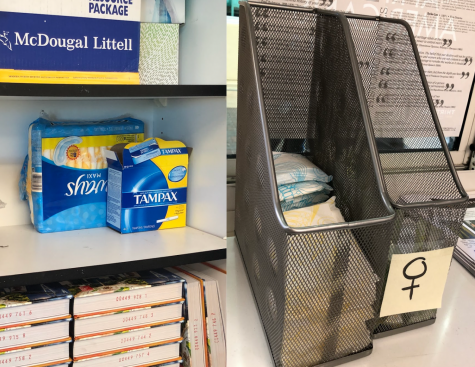
Although some Carlmont classrooms and teacher bathrooms do provide pads and tampons, none of the student bathrooms do. Many students believe that the products should be provided in the bathrooms because they would be more accessible for all students.
Teachers’ bathroom policies are another issue because, according to Monsler, some teachers don’t allow students to go during class, resulting in girls bleeding through their period products and clothes.
“I’ve had a class that didn’t let me go to the bathroom, and then I ended up bleeding through my pants. I’ll usually have to wear a pad and a tampon because there is a possibility that I will bleed through my tampon, and the teacher won’t let me go to the bathroom, and I might have to wait until after school or until I get home,” Monsler said.
As the awareness of period stigma grows, people begin to break that stigma.
“I feel that the stigma, the period, and the feelings surrounding them are wrong and should be rectified. The people should feel completely at ease, discussing periods and how they affect people around them,” Koltsov said.



